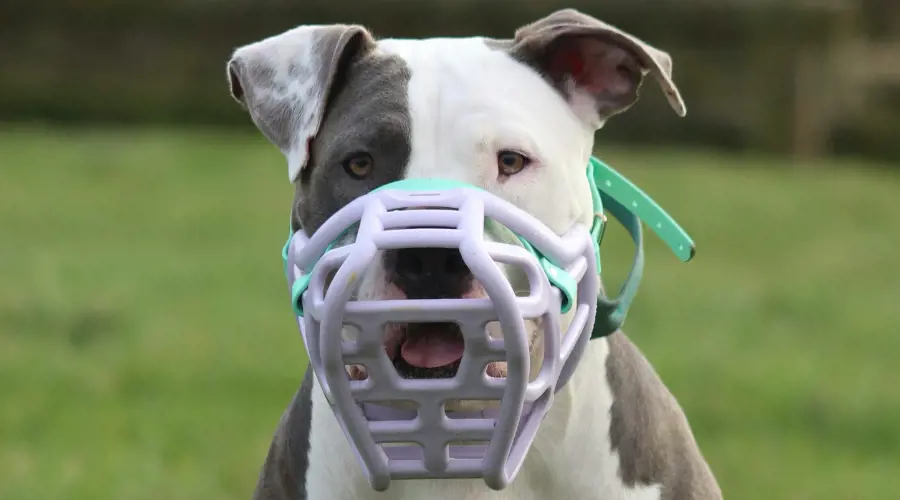Keeping pets – information and advice
Domestic animals (pets)
Secure, flexible (fixed term), and introductory tenants can keep pets. You don’t need to ask our permission to keep small domestic animals such as dogs, cats, rabbits, mice, guinea pigs, fish, or cage birds.
Your responsibilities
Pets can bring a lot of joy to you, but they are a big responsibility and costs vary. Please think carefully before getting any new pet. Try the RSPCA’s pet cost calculator.
You must not keep an animal in an independent living scheme or in a property with a shared entrance unless it’s a registered guide dog for the blind or a registered assistance dog for the deaf and you have our permission to keep it.
If you have any pets, you must keep them under control. Don't allow them to:
- make a lot of noise
- roam on the estate or in other gardens
- foul on the estate, in shared areas, or on footpaths
You must clean up after your pet every day. This includes if it fouls in your own garden, another garden, or any public place. You can’t breed animals in your home or garden.

You must make sure that your pet doesn’t cause any nuisance or damage. If you don’t keep your pet under control, we can take action against you for breach of your tenancy conditions.
If we believe that you’re neglecting the welfare of any animal kept at your home, we will report the matter to the appropriate authorities where you could be liable for prosecution under the terms of the law.
Non-domestic animals
All tenants need our permission to keep any other non-domestic animal. We can refuse permission for any of the following reasons:
- the animal is dangerous
- the animal is a risk to others or to public health
- it's cruel or unreasonable to keep the animal in your home or garden
- the animal is likely to cause nuisance
- keeping of a specific type of animal is illegal or does not meet certain legal requirements

Looking after dogs - advice and guidance
If you have a pet dog, you must look after it properly and make sure it doesn’t cause a nuisance. A dog is a big responsibility and expense to care for, so please think carefully before getting one.
Exercise them – give your dog plenty of exercise but keep your pet under control. If they stray, they may cause a road accident or damage property. You’re legally responsible for your dog’s behaviour.
Clean up after them – never let your pet foul on the estate especially all areas where children play. Pick up the dog mess promptly and dispose of in a responsible manner. You’ll be liable for a fine for not doing so.
Don’t leave them alone for too long – it’s unfair to the dog and your neighbours if the dog is alone and barking. When you’re away, arrange for your pet to be looked after by a reliable friend or family member or place your dog in a licensed boarding kennel.
Maintain a healthy diet – obesity in dogs is a common problem and can shorten their life and cause them unnecessary suffering. Feeding them the wrong food can affect their heath too.
Keep them well groomed – regular grooming keeps your dog’s coat in good condition.
Get them microchipped – all dogs must be microchipped by a trained professional. Your dog’s microchip is given a number, which will show up whenever your dog is scanned. Your contact details are kept alongside the microchip number on a database, so that your dog can be returned to you if it’s lost or stolen. You can be fined up to £500 if your dog isn’t microchipped.
Get them neutered or spayed – we don’t allow our tenants to breed dogs or cats in their home. Animal welfare charities and vets recommend that dogs are neutered or spayed to avoid unwanted puppies and to protect your dog from certain health problems.
Protect them against diseases, worms, ticks and fleas – vaccinate your dog against diseases, worm them regularly, and protect them against ticks and fleas to prevent your dog from getting ill and suffering.
Insure them – you’ll need to pay for treatment at the vets, so shop around for the best policy and make sure your pets are covered.
Information for owners of XL Bully type dogs
XL Bully dogs were added to the list of dogs that are banned in England and Wales in 2023.
Our tenancy agreement states:
You must not keep the following animals at your property:
- Any dog the Dangerous Dogs Act 1991 applies to
- Any animal the Dangerous Wild Animals Act 1976 applies to
- Any dangerous animal
- Any livestock
- Any animal which causes a health and safety risk in the area
- Any animal which is not bred to be a domestic pet
The Dangerous Dogs Act 1991 has been amended to include XL Bully dogs and as such we will not allow tenants to have this breed in their homes from the date of the ban, unless your dog has been exempted.
What does this mean?
On 31 December 2023 the Dangerous Dogs Act 1991 was amended and you’ll break the law if you:
- Sell or give away an XL Bully type dog
- Abandon an XL Bully type dog
- Let an XL Bully type dog stray
- Breed from an XL Bully type dog
- Have an XL Bully type dog in a public place without a lead and muzzle - this includes in a vehicle on a public road
Since 1 February 2024 you'll break the law if you:
- Own an XL Bully type dog, unless you have a valid Certificate of Exemption which you can produce to a police officer or dog warden

What do I need to do?
If you own an XL Bully type dog, you do not necessarily have to get rid of the dog, but to keep the dog, you had to apply for a Certificate of Exemption to keep an XL Bully before 31 January 2024.
As part of the process to exempt your dog, you need third-party liability insurance, which is insurance against your dog injuring other people.
Your dog must be microchipped (which was already a legal requirement).
Your dog also needs to be neutered.
You’ll need to agree to keep the dog on a lead and always muzzled when in public, and must keep the dog secure at all times so it can't escape.
Further help and information for owners
How do I know if my dog is an XL Bully type dog?
If you’re unsure if your dog is an XL Bully, you can use the official definition of an XL Bully to check if your dog falls within this. It involves checking the dog's physical appearance and characteristics, including its size and height. If you carry out these checks and are still not sure, you should comply with the requirements.
If your dog isn’t currently muzzle trained, please look at this Blue Cross muzzle training advice.
If you’re concerned about your dog's behaviour, we encourage you to speak to your vet and they can refer you to an ABTC registered Clinical Animal Behaviourist if necessary.
What should I do if I believe a dog is dangerous or banned?
Dangerous dogs are dealt with by the Police under the Dangerous Dogs Act. In an emergency, contact the police directly on 999. Banned or stolen dogs should be reported directly to the Police on 101. More information is available on the Barnsley Council website here.
What will Berneslai Homes do?
If you believe a tenant has a dangerous or banned dog, please contact us on 01226 787878 to advise us of your concerns after you’ve informed the Police. We’ll then work with the Police to establish if the animal is licenced and exempt, or if action needs to be taken.
If you live in a council property and own an XL Bully type dog, we’ll expect you to fully comply with all requirements and will ask for proof of this. You’ll need to provide Berneslai Homes with a copy of your Certificate of Exemption. If you fail to provide it, we’ll report this to the relevant authorities to enforce this.